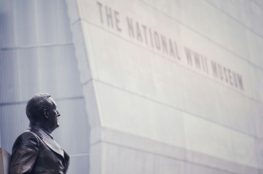January 18, 2024
Teleology. A Greek philosophical concept. As defined by Oxford dictionary: the explanation of phenomena in terms of the purpose they serve rather than of the cause by which they arise.
Wow. Dense.
Sometimes a word flummoxes me. Especially if understanding that word is the key to comprehending a larger work. In and of itself, it means a thing does what it is designed for. A chair, for example, is a chair. It does what it is built to do for the human form. But applied to history? Boy. I don’t know. Yesterday, and continuing still this morning, the concept of a teleological understanding of history evaded me. Sometimes Academics take words from other disciplines, in this case philosophy, and turn them to their own field, twisting them just a bit to fit.
What am I going on about? I am reading a history text published in 2009 by Oxford history professor, Chris Wickham, titled: The Inheritance of Rome: Illuminating the Dark Ages 400-1000. I downloaded the sample yesterday and read the introduction. In it he makes clear that he does not believe that history is teleological. Not once, but at least three times he makes this point. He essentially tells the reader that if one does believe in the teleology of history, this book is not for them. And since I did not understand the word's application to the broad sweep of human history, I was hesitant to pull the trigger to read this excellently reviewed book covering a period of history about which much has been written. Often historians use grand suppositions gleaned from other historians and they generally assert that this period is a so-called Dark Age. That is what I was taught to believe throughout my schooling, all the way through college.
There are few primary sources written contemporaneously for the 400-600 CE phase of western history. That is, other than Gregory of Tours. And that boy sure provides some dense reading. I’ve tried, too. It’s hard to get beyond his Church writings and ferret out the history of Gaul and the Merovingians. The parts I was interested in knowing about at the time. I am finally ready to understand the Church part, too, because the secular and the church are inextricably linked. Having said that - I am not ready to pick up his History of the Franks again, any time soon.
Based on all that I have read during the past decade I conclude the period was not Dark. I have always felt this way. It has never made sense to me that everything just disappeared like in an apocalyptic movie, life after the bomb, where this dystopian society emerges and slowly moves forward to a new modernity. Recent scholarship asserts that there was no Dark Age, which confirms my inclination, gleaned from years of study since college. My basic instinct is to reject simplistic conclusions. They are invariably wrong or at the very least misleading. Sometimes applying Occam's Razor, the simplest explanation, is not the best path. To be sure, the period was opaque, but not a barbaric black hole.
Why bother to read another book that promulgates the old tropes? To make a good decision I need to understand the concept of a teleological view of history. I reread the Oxford dictionary definition, watched a couple of YouTube videos and googled the word a bit. Still, I did not have a solid grasp on the word's use and meaning as a descriptor for a particular general understanding of history.
Full disclosure: I bought the damned book, anyway. It's pretty good, too.
This morning, I searched Reddit; I got what I was looking for. Something to sink my teeth into. Here’s what Reddit user K1990 had to say in a ten-year-old post:
"Look at Whig history! A school of thought which argued that all history can be considered as an inexorable March towards enlightenment/liberalism." He asserts, "The problem with the teleological approach is that it tends towards sophistry: to use the Whig history example again, the idea that British-style liberal enlightenment is the apex of human progress, and the eventual convergence of all history on that point is an inevitability, is deeply problematic. The idea that you can divine a perfect (or in any way satisfactory) linear narrative in history become ludicrous almost as soon as you start to interrogate it to any depth."
I Totally agree. Thank you, Reddit user K1990. Glad I bought the book.
I share a view antithetical to predetermination, to destiny, to an “arc” of history. I just did not know what to call it. I guess I do not have a teleological view of history. Yet, I am sympathetic to it. It offers an inspiring hope and vision of goodness. One can see this in the spiritual view espoused by Theodore Parker, a Massachusetts abolitionist minister in 1853, and made famous by Dr. Martin Luther King. "The arc of the moral universe is long, but it bends towards justice." Nice precept. I want to believe, but I sadly I do not. On more than one occasion I have said that I believe it is so, but only my heart believes it. If it were so, it would mean that the moral universe can be explained as a teleology. That would mean that the nation of Germanic peoples was made to commit the horrors of WWII by design: "The explanation of phenomena in terms of the purpose they serve rather than of the cause by which they arise.”
I do not believe that is so. I agree with Dr. Chris Wickam when, through argument, he points out that each period of history stands separately of its own accord. It travels in a direction of its own choosing unencumbered by the weight of its own past or perceived manifest destiny. Albert Camus said, “Life is a sum of all your choices." Very Stoic of him. I still love my boy Voltaire, though: “Life is a shipwreck-salvage what you can.”



